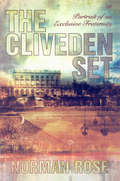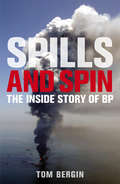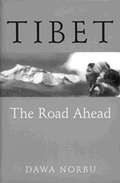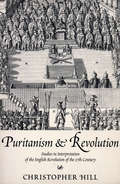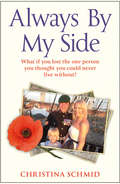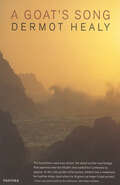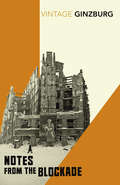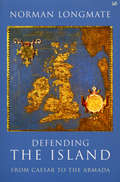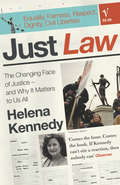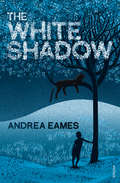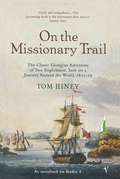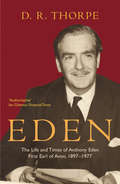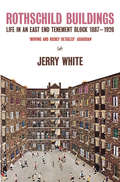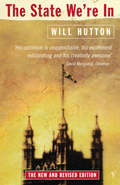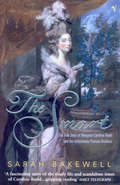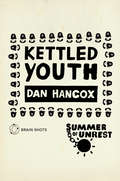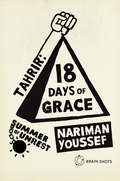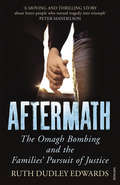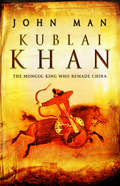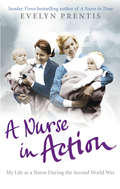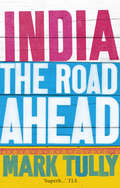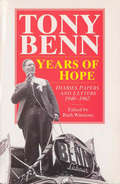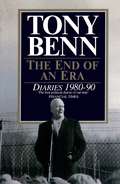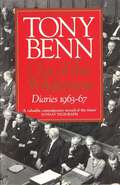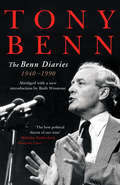- Table View
- List View
The Cliveden Set
by Norman RoseLloyd George once spoke of 'a very powerful combination - in its way the most powerful in the country'. Its proceedings were invariably conducted at Cliveden, the country estate of the fabulously wealthy Nancy and Waldorf Astor. Collectively dubbed 'God's Truth Ltd', the group included leading politicians, academics, writers and newspaper editors. Its pedigree impeccable, its social standing beyond reproach, its persuasive powers permeated the clubs and institutions of London, the senior common rooms of Oxbridge colleges, the quality press and the great country houses of England. Suddenly, in the late 1930s, the 'Cliveden Set' was catapulted into uncalled-for notoriety. It had been identified as a cabal that sought to manipulate, even determine, British foreign policy in order to uphold its narrow class interests. It would use any means, however devious - even negotiate a humiliating, dishonourable settlement with Nazi Germany - to maintain its privileges, those of a decaying ruling class. But was the 'Cliveden Set' a traitorous cabal, challenging 'the constitutional structures of British democracy', or simply an unstructured think-tank of harmless do-gooders? Norman Rose discerningly probes this fascinating tale, brilliantly disentangling fact from fiction, and setting this privileged clique in the wider perspective of its times.
Spills and Spin: The Inside Story of BP
by Tom BerginIn April 2010, the world watched in alarm as BP's Macondo well suffered a fatal explosion and a catastrophic leak. Over the next three months, amid tense scenes of corporate and political finger-pointing, millions of barrels of crude oil dispersed across the Gulf of Mexico in what became one of the worst oil spills in history.But there is more to BP's story than this. Tom Bergin, an oil broker turned Reuters reporter, watched the 'two-pipeline company' of the early 1980s grow into a dynamic oil giant and PR machine by the turn of the twenty-first century. His unique access to key figures before, during and after the spill - including former CEO Tony Hayward - has enabled him to piece together this compelling account of a corporation in crisis, and to examine how crucial decisions made during BP's remarkable turnaround paved the way for its darkest hour.
Tibet: The Road Ahead
by Dawa NorbuTibet: The Road Ahead is the extraordinary account of the potential extinction of a civilisation. Written by a gifted Tibetan of humble origins, this book tells the story of ordinary Tibetans in the twentieth century.Professor Norbu refutes China's claim that Tibet has been part of China since the seventh century AD, showing how the relationship between the two countries was symbolic and ceremonial, rather than one of political suppression. He portrays pre-1950 Tibet as a place of complete and genuine freedom, in stark contrast with recent events in the region.Beautifully written and offering a fresh, incisive look at the road ahead for Tibet in post-Deng China, this book will appeal to all those fascinated by, and concerned for 'the land of the snows'.
Puritanism & Revolution
by Christopher HillThis illuminating collection of essays assesses the seventeenth century, interpreting what used to be called 'The Puritan Revolution', the ideas which helped to produce it and resulted from it, and the relation between these ideas and the political and economic events of the day. Each essay approaches the subject from a different angle, looking at aspects of the revolution - whether religious, constitutional, economic or biographical - in conjunction with a lively sympathy for the men who lived in that revolutionary time. Analysing the writings of Marvell, Hobbes, Harrington and Samuel Richardson, as well as less 'respectable' writers, Professor Hill examines the legacy of the Reformation and the inspiration provided by ideals like the Brotherhood of Man and the desire to re-create a pre-Norman Golden Age. A book that no serious student of our history should miss; it is a treasury of interesting detail and strong ideas, CV Wedgwood.
Always By My Side: Losing the love of my life and the fight to honour his memory
by Christina SchmidA LOVE LOST.A LIFE CUT SHORT.'From the moment I set eyes on him I adored him. The connection between us was so strong it went beyond everything else. His job, my job, his lifestyle, my lifestyle. All that fell away.'And then one earth-shattering day Christina's worst nightmare came true when Oz was killed on his final day of duty before flying home to his family.This is Christina and Oz's story: a story about love and loss, hope and despair and of living in constant fear. Christina's extraordinary bravery and composure is an inspiration to anyone who has ever lost someone they love.
A Goat's Song
by Dermot HealyIn a wind-battered Mayo cottage, playwright Jack Ferris tries to salvage something from his broken love affair with Catherine Adams. Drink and despair drove her away; can his imagination call her back? But as he summons up her past, Jack finds he has also called up Catherine's RUC father and a whole dangerous world of opposed traditions.
Notes From the Blockade
by Lydia GinzburgThe 900-day siege of Leningrad (1941-44) was one of the turning points of the Second World War. It slowed down the German advance into Russia and became a national symbol of survival and resistance. An estimated one million civilians died, most of them from cold and starvation. Lydia Ginzburg, a respected literary scholar (who meanwhile wrote prose 'for the desk drawer' through seven decades of Soviet rule), survived. Using her own using notes and sketches she wrote during the siege, along with conversations and impressions collected over the years, she distilled the collective experience of life under siege. Through painful depiction of the harrowing conditions of that period, Ginzburg created a paean to the dignity, vitality and resilience of the human spirit.This original translation by Alan Myers has been revised and annotated by Emily van Buskirk. This edition includes ‘A Story of Pity and Cruelty’, a recently discovered documentary narrative translated into English for the first time by Angela Livingstone.
Defending The Island: From Caesar to the Armada
by Norman LongmateIn a brilliantly imaginative blend of military, social and diplomatic history, Norman Longmate retells our island story from the perspective of its defenders, in a narrative which stretches from the Celtic tribes who unsuccessfully fought against Ceasar to the great seabourne defence against the Armada of Philip of Spain. He has gone back to the original sources and investigated the original battlegrounds and weak spots in Britain's defences. But the real strength of his book is its seamless narrative of history, which uncovers the truth behind the legends. A mass of solidly researched fact, not readily found elsewhere, is seasoned with lively, humorous and occassionally gruesome anecdote. The result, providing at once an invaluable sourcebook for the specialist and an enthralling narrative for the general reader, is by far the most comprehensive and accessible history of England versus invasion ever published.
Just Law
by Helena KennedyAcute, questioning, humane and passionately concerned for justice, Helena Kennedy is one of the most powerful voices in legal circles in Britain today. Here she roundly challenges the record of modern governments over the fundamental values of equality, fairness and respect for human dignity. She argues that in the last twenty years we have seen a steady erosion of civil liberties, culminating today in extraordinary legislation, which undermines long established freedoms. Are these moves a crude political response to demands for law and order? Or is the relationship between citizens and the state being covertly reframed and redefined?
The White Shadow
by Andrea Eames‘Look after your sister, Tinashe.’ When Hazvinei was born, Tinashe knew at once that there was something different about her. Growing up in a rural Rhodesia still haunted by memories of the recent guerilla wars, Tinashe knows he must take extra care of his sister. But Hazvinei is a wild spirit and soon the village starts to whisper – dark talk of curses and spirits. Tinashe is prepared to follow his sister anywhere – but how far can he go to keep her safe when the forces threatening her are so much darker and more sinister than he suspected?
On The Missionary Trail
by Tom HineyThis is the strange and wondrous story of an eight-year voyage and a mission to save souls. Their mission started in the South Seas, where they reported scenes of chiefs surfing, perpetual warfare and a sudden surge of Christianity. From there they went via New Zealand, Australia and its aboriginal hinterland, through 'the Orient' to India and slave-ridden Mauritius. Based on contemporary journals, mission reports, letters and illustrations, and bursting with character and anecdote. ON THE MISSIONARY TRAIL is both the enthralling narrative of the longest missionary voyage ever undertaken and a colourful, detailed, eye-opening snapshot of little-known worlds, set against the wider picture of evangelism and guilt, heroism and humanity.
Eden: The Life and Times of Anthony Eden First Earl of Avon, 1897-1977
by D R ThorpeAnthony Eden, who served as both Foreign Secretary and Prime Minister, was one of the central political figures of the twentieth century. He had good looks, charm, a Military Cross from the Great War, an Oxford first and a secure parliamentary constituency from his mid-twenties. He was Foreign Secretary at the age of 38, and the first British statesman to meet Hitler, Mussolini and Stalin. Eden's dramatic resignation from Neville Chamberlain's Cabinet in 1938, outlined here in the fullest detail yet, made an international impact.This ground-breaking book examines his controversial life and tells the inside story of the Munich crisis (1938), the Geneva Conference (1954), Eden's battles with Churchill over the modernisation of the post-war Conservative Party and his rivalry with Butler and Macmillan in the early 1950s, culminating in a fascinating analysis of the Suez crisis.
Rothschild Buildings: Life in an East-End Tenement Block 1887 - 1920
by Jerry WhiteWinner of the Jewish Chronicle Harold H. Wingate Literary Award.Rothschild Buildings were typical of the 'model dwellings for the working classes' which were such an important part of the response to late-Victorian London's housing problem. They were built for poor but respectable Jewish immigrants from Eastern Europe, and the community which put down roots there was to be characteristic of the East End Jewish working class in its formative years. By talking to people who grew up in the Buildings in the 1890s and after, and using untapped documentary evidence from a wide range of public and private sources, the author re-creates the richly detailed life of that community and its relations with the economy and culture around it. The book shows how cramped and austere housing was made into homes; how the mechanism of class domination, of which the Buildings were part, was both accepted and fought against; how a close community was riven with constantly shifting tensions; and how that community co-existed in surprising ways with the East End casual poor of 'outcast London'. It provides unique and fascinating insights into immigrant and working-class life at the turn of the last century.
The State We're In: (Revised Edition)
by Will HuttonThe number one bestseller on the hardback list for more than six months, The State We're In is the most explosive analysis of British society to have been published for over thirty years. It is now updated for the paperback edition.
The Smart
by Sarah BakewellThe Smart is a true drama of eighteenth-century life with a mercurial, mysterious heroine. Caroline is a young Irishwoman who runs off to marry a soldier, comes to London and slides into a glamorous life as a high-class prostitute, a great risk-taker, possessing a mesmerising appeal. In the early 1770s, she becomes involved with the intriguing Perreau twins, identical in looks but opposite in character, one a sober merchant, the other a raffish gambler. They begin forging bonds, living in increasing luxury until everything collapses like a house of cards - and forgery is a capital offence. A brilliantly researched and marvellously evocative history, The Smart is full of the life of London streets and shots through with enduring themes - sex, money, death and fame. It bridges the gap between aristocracy and underworld as eighteenth-century society is drawn into the most scandalous financial sting of the age.
Summer of Unrest: The Battle Against the Neoliberal Endgame
by Dan Hancox"Those who do not move, do not notice their chains." - Rosa LuxemburgIn this considered and polemical piece, Dan Hancox examines a world in which our fates are no longer governed by elected representatives with shirts and ties, but abstract finance. Where the problem is not so much false consciousness as blurred consciousness. He examines the 'spectacle of capitalism' that has stymied political activism for so long and how the closing months of 2010 saw a surge in rage that continues as the youth of Britain is waking up from its malaise in the face of provocation and the cuts programme.Beginning in the stifling kettle on Westminster Bridge, Hancox weaves on-the-ground reportage with political theory to describe and explain the growth of movements like UK Uncut, the University for Strategic Optimism and other actions to create a better society. An anthem for kettled youth, this ebook is a stake in the ground signalling the rebirth of the curiosity of a generation breaking free of its shackles.BRAIN SHOTS is the pre-eminent source for high quality, short-form digital non-fiction. The Summer of Unrest series brings together stellar writers to explore the issues surrounding the austerity measures in the UK, uprisings in the Middle East and the nature of the protest movements springing up all over the world.
Summer of Unrest: Tahrir - 18 Days of Grace
by Nariman YoussefOn 25th January this year 50,000 people descended on Tahrir Square in Cairo to protest against president Hosni Mubarak. What followed was an extraordinary 18 days when the square became the focal point for the hopes and fears of Egypt's people, in a situation often joyous but also intense, as the military moved in and Mubarak supporters began to infiltrate the area.Nariman Youssef was in Tahrir Square during this extraordinary gathering. This ebook for the Summer of Unrest series is a gripping diary of that time until Mubarak stepped down on 11th February, which saw the crowds in the square swell to 1 million at one point. As well as an extraordinary insight from within the most important uprising in the Arab Spring, Youssef pulls back to document the signposts to, and issues that fueled, the surge for democratic change in Egypt, exploding myths and uncovering hidden truths as she goes.BRAIN SHOTS is the pre-eminent source for high quality, short-form digital non-fiction. The Summer of Unrest series brings together stellar writers to explore the issues surrounding the austerity measures in the UK, uprisings in the Middle East and the nature of the protest movements springing up all over the world.
Aftermath: The Omagh Bombing and the Families' Pursuit of Justice
by Ruth Dudley EdwardsOn Saturday 15th August, 1998, a massive bomb placed by the so-called Real IRA ripped through the town of Omagh, killing twenty-nine people, including eleven children, and injuring over two hundred. It was the worst massacre in Northern Ireland's modern history- yet from it came a most extraordinary tale of human resilience, as the families of ten of the dead channelled their grief into action.Taking for their motto, 'For evil to triumph, all that is necessary is for good men to do nothing', they decided to pursue the men whom the police believed responsible for the atrocity through the civil courts, where the burden of proof is lower. This is the remarkable account of how these families- who had no knowledge of the law and no money- became internationally recognised, formiddable campaigners and surmounted countless daunting obstacles to win a famous victory.Longlisted for the Orwell Prize 2010
Kublai Khan
by John ManIn Xanadu did Kubla KhanA stately pleasure dome decreeKublai Khan lives on in the popular imagination thanks to these two lines of poetry by Coleridge. But the true story behind this legend is even more fantastic than the poem would have us believe. He inherited the second largest land empire in history from his grandfather, Genghis Khan. He promptly set about extending this into the biggest empire the world has ever seen, extending his rule from China to Iraq, from Siberia to Afghanistan. His personal domain covered sixty-percent of all Asia, and one-fifth of the world's land area. The West first learnt of this great Khan through the reports of Marco Polo. Kublai had not been born to rule, but had clawed his way to leadership, achieving power only in his 40s. He had inherited Genghis Khan's great dream of world domination. But unlike his grandfather he saw China and not Mongolia as the key to controlling power and turned Genghis' unwieldy empire into a federation. Using China's great wealth, coupled with his shrewd and subtle government, he created an empire that was the greatest since the fall of Rome, and shaped the modern world as we know it today. He gave China its modern-day borders and his legacy is that country's resurgence, and the superpower China of tomorrow.
A Nurse in Action
by Evelyn Prentis'We were quickly learning to live with war. We became very proficient at moving the patients who could walk quickly to the shelters when the sirens went. We were equally proficient at talking those who couldn't walk into believing that they would be safe where they were. Some believed us, others didn't.'Surprising Matron as well as herself, Evelyn Prentis managed to pass her Finals and become a staff-nurse. Encouraged, she took the brave leap of moving from Nottingham to London - brave not least because war was about to break. Not only did the nurses have to cope with stray bombs and influxes of patients from as far away Dunkirk, but there were also RAF men stationed nearby - which caused considerable entertainment and disappointment, and a good number of marriages ...But despite all the disruption to the hospital routine, Evelyn's warm and compelling account of a nurse in action, shows a nurse's life would always revolve around the comforting discomfort of porridge and rissoles, bandages and bedpans.
India: the road ahead
by Mark TullySince the Indian economy was liberated from bureaucratic, socialist controls in 1991, it has developed rapidly. A country once renowned for the backwardness of its industries, its commerce and its financial market is now viewed as potentially one of the major world economies of the twenty-first century. But there are many questions which need to be asked about the sustainability of this rapid economic growth and its effect on the stability of the country. Have the changes had any impact on the poor and marginalised? Can India's democracy contain the mounting resentment of those left out of the new economic order? Can a high growth rate be sustained with India's notoriously corrupt and inefficient governance? Can the development of its creaking infrastructure be speeded up? How is India going to feed itself unless agriculture is reformed?This timely book will answer these questions through interviews with industrialists and cricketers, God men and farmers, plutocrats and former untouchables. Full of fascinating stories of real people at a time of great change, it will be of interest to economists, business people, diplomats, politicians, as well as to those who love to travel and who take an interest in the rapid growth of one of the world's largest countries, and what this means to us in the West.
Years Of Hope: Diaries, Letters and Papers 1940-1962
by Tony BennYEARS OF HOPE is a kind of 'prequel' to the published series of DIARIES, and will cover fully the peerage renunciation, as well as revealing his early career, touching on schooldays, RAF service during the war, early involvement with politics etc. As a young man he had dealings with Atlee, Bevan, Morrison, Gaitskill and all the major politicians of the post-war Labour Government. This book will be more personal than earlier volumes and will draw on letters and other documents as well as the DIARIES themselves. It will reveal the extraordinary consistency of Benn's political views, as well as showing how he came to acquire them.
The End Of An Era: Diaries 1980-1990
by Tony BennTony Benn's final instalment of diaries centres on a decade which saw the disintegration of Eastern Europe, an unprecedented assault on the labour movement at home, the fall of Margaret Thatcher and the tragic war in the Gulf. It is a period which marks the peak of Tony Benn's reputation as a brilliant parliamentarian. This final volume of diaries gives us insight into an era of extraordinary international and domestic political life making it one of the most important political writings of our time.
Out Of The Wilderness: Diaries 1963-67
by Tony Benn1963 saw Labour's emergence from its 'wilderness years' in Opposition, and the election of Harold Wilson following the unexpected death of Hugh Gaitskell. In the first Wilson government of 1964 Benn was made Postmaster General and became known as an innovator for his introduction of the Giro and arguing for a radical broadcasting policy. After Labour's landslide victory of 1966 he was appointed to the Cabinet as Minister of Technology, but Labour's honeymoon came to an abrupt end in 1967 with the introduction of devaluation, leading to disilliusionment with the Government.Tony Benn's account on his relations with the industrialists, television and press chiefs, the Palace and the diplomatic world as well as trade unionists, civil servants, and his Cabinet colleagues, reveals the workings of our political and economic systems at the highest level.Out of the Wilderness is a unique political record of the 1960s, told by a man who served in five Labour administrations and who today is one of the most experienced figures both in and out of the House of Commons.'No-one interested in the political influence of the Crown, the intrigues of the civil service or the highly traditionalist character of Harold Wilson can afford to ignore it' The Observer
The Benn Diaries: 1940-1990
by Tony BennThe Benn Diaries, embracing the years 1940-1990, are already established as a uniquely authoritative, fascinating and readable record of political life. The selected highlights that form this single-volume edition include the most notable events, arguments and personal reflections throughout Benn's long and remarkable career as a leading politician.The narrative starts with Benn as a schoolboy and takes the reader through his youthful wartime experiences as a trainee pilot, his nervous excitement as a new MP during Clement Atlee's premiership and the tribulations of Labour in the 1950s, when the Conservatives were in firm control. It ends with the Tories again in power, but on the eve of Margaret Thatcher's fall, while Tony Benn is on a mission to Baghdad before the impending Gulf War.Over the span of fifty years, the public and private turmoil in British and world politics is recorded as Benn himself moves from wartime service to become the baby of the House, Cabinet Minister, and finally the Commons' most senior Labour Member.
